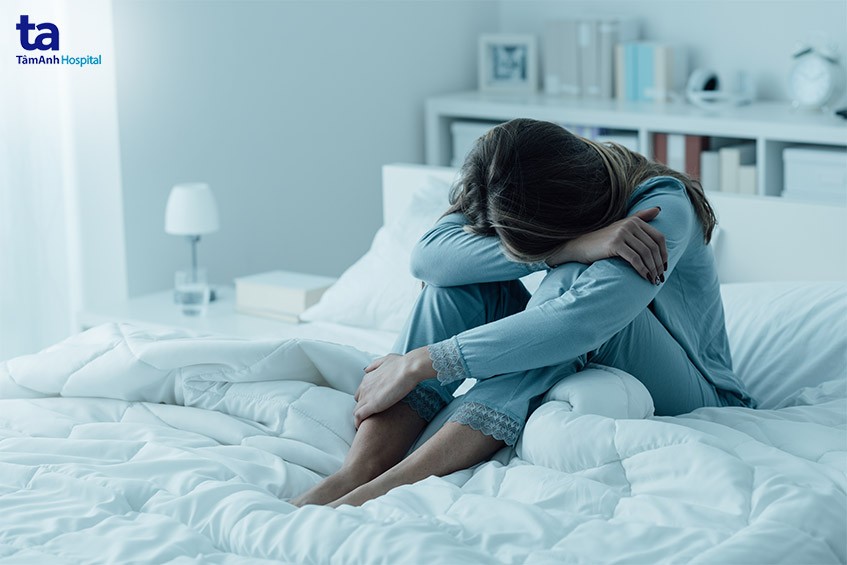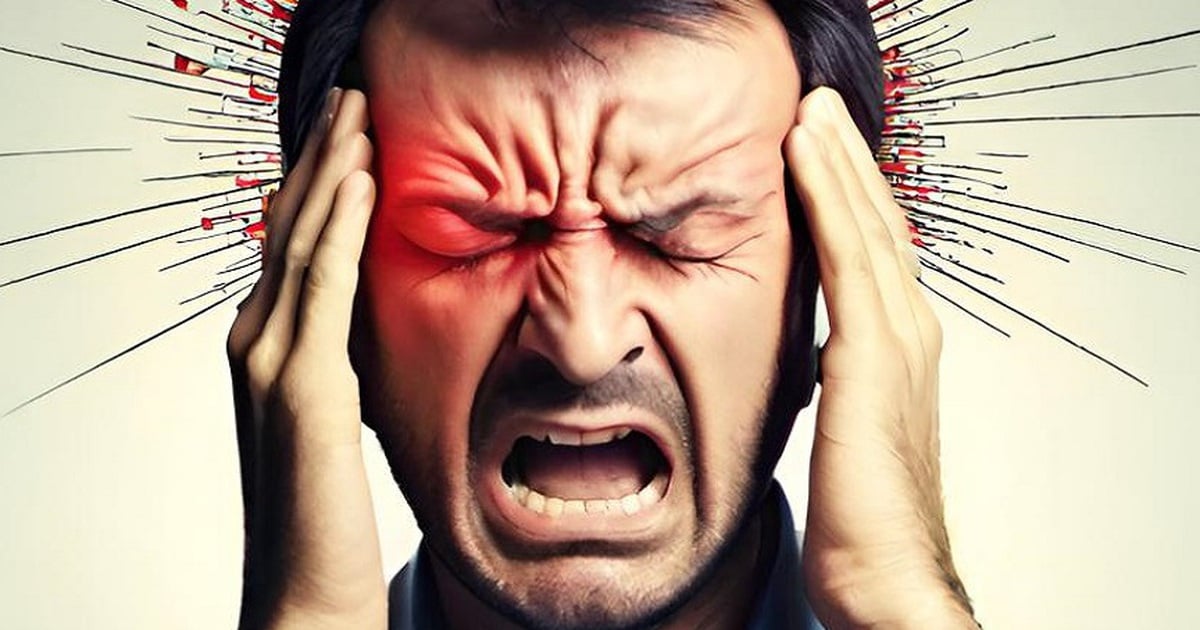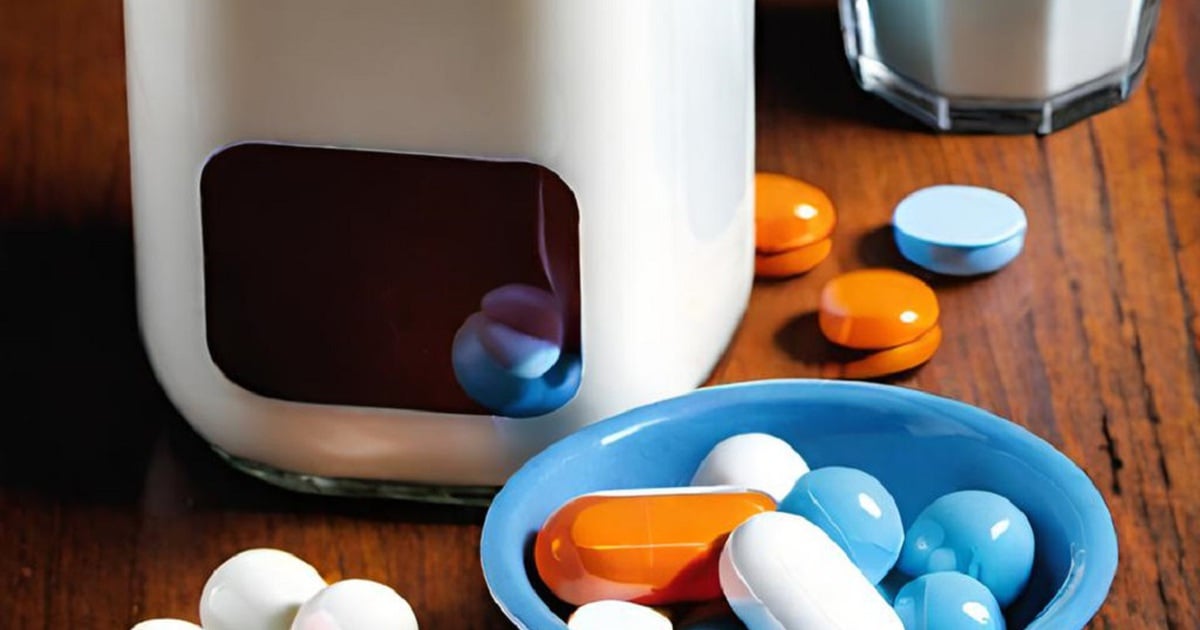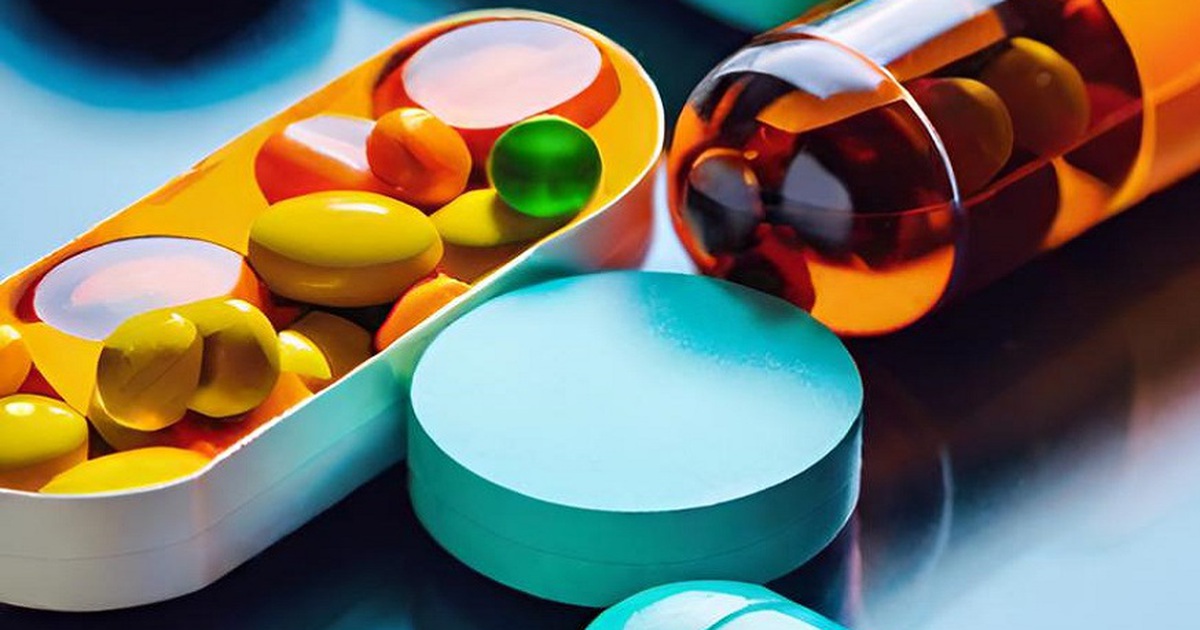Depression is one of the most common mental disorders in the world.
 |
| Women are twice as likely to suffer from depression as men. (Source: Tam Anh Hospital) |
Depressive disorders are quite dangerous, affecting the patient's mental, physical, functional and even joy in life.
Causes of depression
Depression can be caused by a variety of single factors or a combination of factors. Common causes include:
- Due to genetic factors: If someone in your family has had depression, you may be more likely to get the disease than normal people.
- Brain chemistry: According to some studies, the chemical composition of the brains of people with depression is different from that of normal people. Both norepinephrine and serotonin are considered to be the causes of the disease. Initially, it was thought that a decrease in the concentration of one of these two neurotransmitters affected mood.
This simple notion has now been challenged by recent data. Mood appears to result from the interaction of serotonin and norepinephrine. It may even result from the interaction of these two chemicals with other brain receptors.
- Due to stress: The death of a loved one, difficulties in a relationship or any stressful situation can cause depression.
- Due to the influence of some diseases: Physical diseases such as traumatic brain injury, stroke, brain tumor, dementia... will also be the causes of the disease.
- Frequent insomnia: Sleeping too little will affect the symptoms of depression. Therefore, pay attention to your sleep cycle, maintain appropriate sleep and wake times, and go to bed at the same time every night.
Symptoms of depression
The initial symptoms in most depressed patients are often vague fatigue, headaches, sleep disorders (light sleep, waking up in the middle of the night), difficulty concentrating, and a marked decrease in work and study performance. Gradually, the above signs become more severe and symptoms of the full-blown stage appear.
In typical cases of clinical depression the following symptoms are expressed:
There are 3 typical symptoms:
- Dark complexion: sad, gloomy, heavy facial expression...
- Loss or reduction of interest and pleasure, the patient is not interested in people or things around, no longer has any interests, including entertainment and social activities.
- Loss or reduction of energy, reduced activity, fatigue, the patient feels exhausted, often sitting or lying in one place.
There are 7 other common symptoms:
- Decreased concentration and attention.
- Decreased self-esteem and confidence.
- Consider yourself guilty, defective, unworthy.
- Look at the future as bleak, pessimistic, dark.
- Have ideas or behaviors of self-harm or suicide.
- Sleep disorders (light sleep, many nightmares).
- Poor appetite, loss of appetite.
In severe depressive disorder, the patient shows signs of weight loss (5% loss of body weight in 4 weeks), decreased or loss of libido, complete insomnia, many manifestations of autonomic nervous system disorders and body disorders. There are many cases with psychotic symptoms such as paranoia, hallucinations, sensory disturbances...
In particular, the above symptoms of depression last for at least 02 weeks.
Is depression contagious?
Depression is a mood disorder so it is not contagious and cannot be transmitted.
Preventing depression
Depression is a completely preventable disease. Creating a healthy living, learning, and working environment and caring, sharing, and support from family, friends, colleagues, and the community are extremely important to prevent and control depression.
To prevent depression, the health sector recommends:
- Depression is not a sign of weakness. Anyone can get depression.
- Talk to people because talking is one of the simplest ways to prevent and treat depression.
- If you think you are depressed: Be proactive in communicating with people, share your feelings and thoughts with someone you trust. Continue to work, exercise actively, and avoid using alcohol and addictive substances.
- When you need professional help: Go to the nearest medical facility for medical staff to guide and advise you on your health.
What can families do to help patients prevent depression?
- Closely monitor patient compliance with treatment.
- Care, share and encourage patients, do not discriminate against or shun patients, encourage dynamism and liveliness, and avoid isolation.
- Always closely monitor changes in the patient's psychology and actions.
- Avoid conflicts and frequent arguments.
- Encourage patients to participate in activities according to the instructions for recreational activities.
- Helps patients store all documents related to treatment.
- Monitoring unwanted side effects of drugs helps patients overcome side effects of drugs.
- Early detection of warning signs of relapse and taking the patient to a medical facility.
How to treat depression
The principle is to detect depression early and accurately. Determine the level of depression in the patient (mild, moderate, severe). Find the cause of depression (depression, endogenous or depression after psychological trauma, other physical diseases).
Depending on the cause and specific case, doctors will have appropriate treatment options.
Some specific drugs:
- If depression is accompanied by agitation, anxiety, insomnia or many physical and visceral symptoms, you should choose a group of gentle antidepressants such as: Amitriptyline, Effexor, Remeron, Stablon...
- For depression, sluggishness, and obsession, choose antidepressants such as Imipramin and Anafranil.
The choice of antidepressant should be based on the following criteria:
- Clinical manifestations of depression.
- Antidepressants have been used effectively by the patient before.
- Based on the effectiveness of the drug and the current medical supply capacity.
- Based on the cause of depression and accompanying physical illness, choose drugs with few complications and side effects.
Cases requiring inpatient treatment.
- Severe depression with paranoia, hallucinations, agitation.
- Depression with suicidal thoughts and behavior.
- Depression, refusal to eat, physical exhaustion.
Treatments for depression
- Psychological therapy: sharing, sympathizing, being close to the patient.
- Electric shock
Transcranial Magnetic Stimulation (TMS) is a technique that uses the effects of electromagnetic fields through the skull to affect nerve cells in the cerebral cortex with the aim of enhancing the electrophysiological activity of nerve cells and regenerating the connection between functional areas of the cerebral cortex.
Note, because the drug has some possible side effects: Dry mouth, bitter mouth, dizziness, fatigue, anxiety, nausea, vomiting, decreased sexual ability, rapid pulse, constipation. Therefore, when the above symptoms appear, you should stop taking the drug and report to your doctor. Do not worry too much to avoid worsening the disease.
Patients need to have a suitable diet, patients should eat enough nutrients to help the body have enough nutrition, quickly recover health, and increase treatment effectiveness.
You should eat enough of the 4 food groups every day such as protein (meat, fish, eggs); starch and sugar (rice and cereals); vegetables and fruits (vitamins); fat (vegetables, fats).
Choose easily digestible foods to help your digestive system absorb better.
Eat more green vegetables
Drink more water than usual
Don't: Do not drink alcohol and alcoholic beverages; Limit foods high in fat and sugar, and stimulants.
Source: https://baoquocte.vn/chuyen-gia-y-te-chi-ro-nguyen-nhan-bieu-hien-cach-phong-va-dieu-tri-tram-cam-271030.html































































Comment (0)